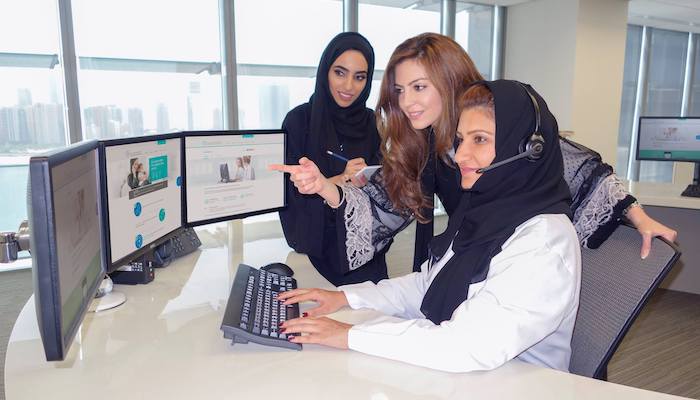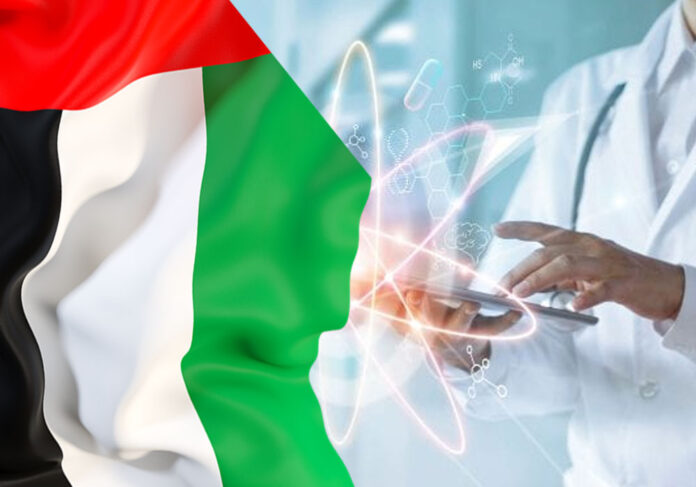Healthcare innovation began thousands of years ago, changed the way patients access their healthcare, and helped us all lead healthy lives. It is an extraordinary thing that we experience in our daily lives.
Let’s look at the story of the invention of X-rays, whose discovery came by chance in 1895. Physicist Wilhelm Conrad Röntgen was then testing an electric discharge when he noticed the optical effects of barium chloride, which he was using to study the effect of electric currents passing through a gas.
His idea was initially rejected by healthcare professionals, and after 126 years we would never have imagined that accurate diagnosis and treatment of fractures would be possible without the use of X-rays until these X-rays became used on a daily basis to help millions of people around the world.
Tools like robotic surgery and artificial intelligence have revolutionized science, and in 2021 we see a global transformation in the way technology drives the healthcare sector.
New technologies are making a tangible impact on the way we live, from the way we dispense medicines to improving accuracy in early disease detection. The real promise of this innovation is when we have the opportunity to transform our daily lives.
The Health sector’s Response to the Coronavirus pandemic
One of the most prominent recent examples of technology that has made tangible improvements to our health is the rapid response of the world to the Coronavirus pandemic.
We have several vaccines under development, many of which have received regulatory approval and are distributed to millions of individuals worldwide, which is a scientific achievement. Amazing.
Thanks to technology in the field of immunology, the biotechnology and pharmaceutical sectors have been able to sequence the virus’ genome, develop candidate vaccines, and run trials months after the virus outbreak.
But the question is: How is this possible?
The answer lies in the fact that scientists of this era have spent many years designing new technologies to prepare for these events, the possibilities of modern genetics have been subject to research and exploration, and it has become possible to use genome sequencing to predict the components of the virus.
The infrastructure of clinical trials has also made it possible to test the safety and efficacy of these vaccines globally at an unprecedented pace, and as a result, the residents of the United Arab Emirates are privileged to reserve a place for themselves among the first nations to have already obtained an effective and safe vaccine designed to protect them from the emerging Coronavirus “Covid- 19″.

Telemedicine & Teleconsultation in UAE
Telemedicine is another example of a technology that has been able to transform the delivery of healthcare services over the past year.
The provision of telemedicine and teleconsultation through communication technology was not widely available before the pandemic, and when it was available, patients usually preferred traditional face-to-face consultations, and when the pandemic broke out, this type of consultation became not possible, which is why virtual visits succeeded in filling Gap.
Despite this, patients were hesitant, reassurance was needed, and the pace of change in the way of interaction with healthcare professionals came in a fast and new way, and thus gaining patients’ trust was essential.
Telemedicine has done more than provide a short-term solution, it has made healthcare easier, provided comfort to people at risk, and made patients feel relaxed in their own environment. It also made them more receptive to sharing information about their health, which is why the pandemic is a boost to the adoption of telemedicine, and this shift is likely to be permanent.

Malaffi Platform’s Efforts to Promote Public-Private Partnerships (PPP) in Healthcare
Among the other important advantages that innovation has provided for the health of UAE people is the enhanced sharing of response efforts data that was made available during the peak of the pandemic, and the response of decision-makers was immediate and decisive. The Department of Health – Abu Dhabi, thanks to the availability of the “Malaffi” platform“, which facilitated the process of health data sharing, was able to link healthcare institutions that provided direct care services to “Covid-19” patients and create a central database for each test result in the emirate of Abu Dhabi, which amounted to more than 43 million tests to date.
The question remains: What is the benefit? Well, healthcare providers can make more accurate and efficient decisions about the provided patient care, while ensuring that they can assess the risks to each patient, as well as protect their staff and other patients.
The availability of this real-time data has allowed the Department of Health to rapidly enhance its response to the pandemic, UAE has been able to implement better pandemic control measures, and as we mentioned earlier, the way to advance in healthcare is to strengthen collaboration between the private and public sectors.
Malaffi creates a central database of consolidated patient records, improving the quality of healthcare and patient outcomes and instant access to critical medical records, which can be safely shared among healthcare providers across the emirate of Abu Dhabi, ensures safer, faster, and more efficient care is delivered day in and day out.
As a result of the continuous solidarity of all concerned on this trip, the United Arab Emirates succeeded in vaccinating 79.04% of its population with at least the first dose, while 70.69% of them received two full doses of the vaccine, according to the latest statistics issued by the UAE government.
This makes UAE among the countries with the highest vaccination rate in the world, and in the Emirate of Abu Dhabi in particular, the “Malaffi” platform provided all vaccine data in the emirate to support the highly efficient digital vaccination program of the Department of Health, and population risk management systems in relation to health care will be of utmost value for early warnings and increased readiness to deal with any possible future outbreak for population safety at the local and global levels.
Consolidated Health Data for Better Patient Outcome
Prior to the creation of Malaffi, important information about health was kept separate and uploaded to the hospital or clinic’s electronic medical records (EMR) system, and because citizens certainly visit many healthcare professionals, in various facilities and over time, Specialists are not able to share this data, which often affects the coordination of care.
The burden was placed on patients, who had to remember to bring their records with them at every appointment.
With the adoption of the Malaffi platform, which is part of the strategic priorities of the Department of Health and a key element in the digital transformation of the healthcare system in Abu Dhabi, these electronic medical records can serve as a common language.
The platform enables the meaningful and real-time exchange of important health information among different healthcare providers in Abu Dhabi.
When a patient goes to a doctor, nurse or any other healthcare provider, they will have access to important and constantly updated information about the patient’s medical history at the point of care.
Thus, patients do not have to worry about remembering details of their medical history or carrying their paper records, and patients are provided with improved, safer, more effective, and coordinated care.
Interoperability and Sharing Patient Medical Records
Malaffi now connects 94% of all patient cases, 98% of hospitals in Abu Dhabi, and nearly 1,300 facilities of varying scope and size. Laboratory, radiology reports and medication taken by the patient, ensuring a continuum of care no matter where the patient chooses to go to meet their medical needs.
It is worth noting that the “Malaffi” platform has obtained accreditation from two international bodies, namely, the “International Organization for Standardization” (ISO) in the field of information security management, and the “Electronic Healthcare Network Accreditation Commission (EHNAC), and this achievement confirms the platform’s distinction with data privacy standards in addition to the best security practices used in it.
The future and potential of innovation in healthcare is truly amazing, and the healthcare sector can sometimes be slower in adopting new technology compared to other sectors, but in the UAE, thanks to the vision of the wise leadership, and as one of the early adopters of healthcare technology integration, UAE is in a position to benefit from this shift, while seeing improvements in the care provided to UAE people everyday.

